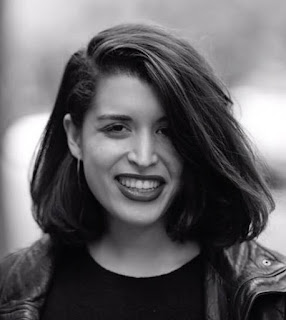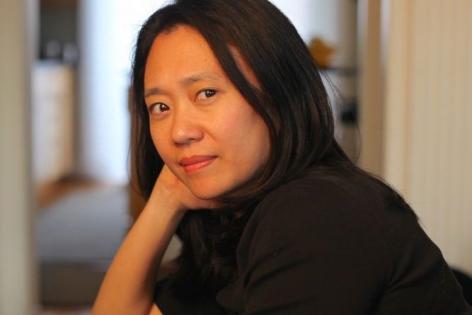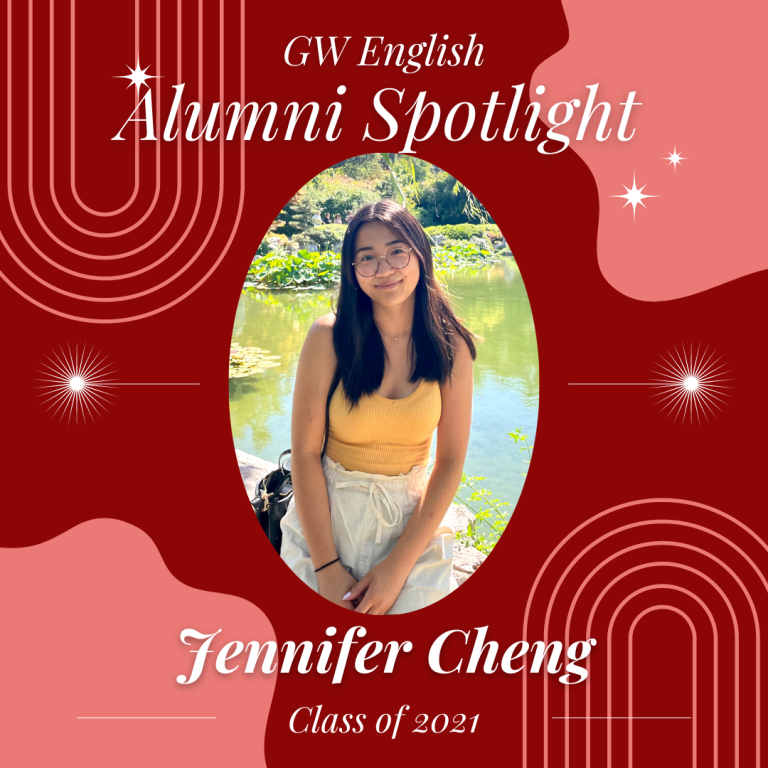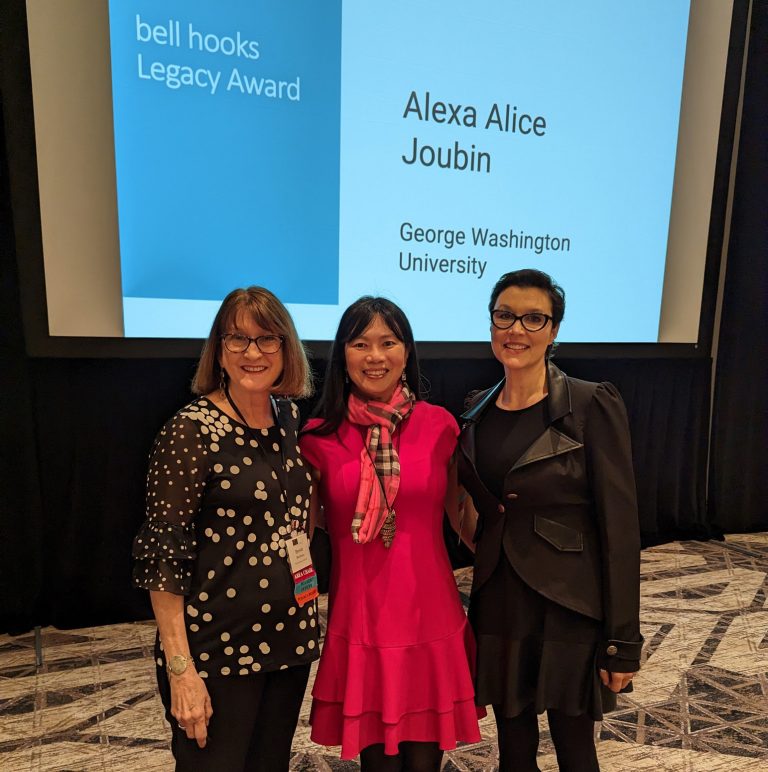 |
| GW English Professor Jennifer Chang |
As we continue our Introducing New Faculty series, we’re excited to introduce you to Jennifer Chang, who will be joining us in the fall, in the Creative Writing Program, as an Assistant Professor of Poetry. Listed by former poet laureate Rita Dove as one of the young poets she is “following with great hope,” Professor Chang joins us with one book of poems completed and a manuscript under revision. Her poetry has appeared in Kenyon Review, New England Review, New Republic, Boston Review, and other venues. You can read Rita Dove’s full list and see Professor Chang reading her poetry here.
Tell us about your poetry — what you’ve written so far and what you’re working on.
I have one book of poems, The History of Anonymity, and I’m currently revising a manuscript for my second book of poems, Some Say the Lark. I write about nature – how nature affects the construction of a self, how culture shapes one’s perception of nature, and how very small and insignificant we measure against nature. Of course, by stating that, I feel I’ve left out so much out! I’m compelled by the emotional landscapes one can experience through forms poetic and otherwise – from elegy to epistle, lyric fragment to lyric sequence, sentence to séance – and a poem’s form often reflects on and refracts off the physical spaces I’m writing about it, even when the poem’s just about Frank O’Hara or the story of Hansel and Gretel. While writing my first book, I was very much preoccupied with deflecting narratives of childhood, like fairy tales and myths, and sought alternative approaches such as a performative voice or syntactic fragments to convey event, experience, and meaning. To me, getting lost in language is like getting lost in a forest. In my second book, the poems are more conversational, as I found myself frequently writing about (and to) women in literature and literary history – Dorothy Wordsworth, Mary Wollstonecraft, Willa Cather, Perdita in A Winter’s Tale – and how their voices reflected on natural environments and yet were often submerged by their cultural environments. A lot of these poems arose out of conversations with friends and with texts that moved me, and for that reason I think of it as a more personal book.
What poets have you been reading lately?
I’ve been re-reading Bhanu Kapil’s Humaninimal: A Project for Future Children and Joe Brainard’s I Remember. Neither is recognizably poetry, though, like lyric, each charts the unpredictable, yet surprisingly patterned machinations of the mind in motion.Humaninal follows Kapil’s investigation into two little girls who were found in the jungles of India raised by wolves in the nineteenth century: it’s prose poetry that’s influenced by ethnography, documentary film, postcolonial theory, and fairy tales, and it’s fragmentary and digressive. A true investigation. I Remember is a list of sentences beginning with “I remember…” I love that the discipline of Brainard’s monomania lets the poem be silly, boring, and stunningly poignant. This suits my life well at the moment, as my husband and I recently had a baby, and life with a newborn follows the same random emotional trajectory as the book. I read favorite poems out loud to the baby, too: he likes Hayden, hates Eliot.
We notice you’re teaching advanced poetry in the Fall. What are some of the things you plan to do with this upper-level course?
We’ll divide the semester up into weekly workshops and the close study of three forms: self-portraits, blank verse, and lyric sequences. I thought beginning with self-portraits would be a dynamic way for the students to introduce themselves to me, while honing their imagination and language for self-representation. I also want to introduce them to my workshop pedagogy, which focuses not only on the craft of writing but also on how the poems we write and read are in conversation with work from other historical periods and genres. We’ll read contemporary examples, as well as Dickinson and Ashbery, and look at literary and visual self-portraits by poets like Plath, Williams, and Brooks. And we’ll try to close read and steal techniques from artists like Velazquez, Van Gogh, Kahlo, Alice Neel, and Cindy Sherman. I’m still considering what I’ll teach for the blank verse and lyric sequence units, but I hope the first weeks set the stage for much creativity in how students approach writing, thinking, and talking about poems.
What made you want to join the GW English Department?
At every step of the interview process with GW, I’ve had the kinds of rich, provocative conversations about literature, teaching, and community that make me truly excited to be a writer, scholar, and teacher. I was already impressed with the excellence of the faculty and the students, but everyone’s willingness to engage with each other and the department’s incredibly generous spirit signal, to me, a happy and intellectually vibrant place to work.
What are you most looking forward to about moving to Washington, DC?
I grew up in NJ, a three-hour drive up 95, and so many field trips and family vacations involved the museums, various monuments, and/or cherry blossom season. I have great memories of these times and I look forward to knowing DC more intimately as an adult. But I’m especially thrilled to be living in a city with a professional basketball team. So the Wizards aren’t great, but they have John Wall and maybe they’ll get better?
Is your new baby excited about the move?
Baby Henry (aka Hank) is so excited about the move that he arrived three weeks early, on April 15th, ready to go!
.jpg) |
| Henry, age 3 weeks |
And what a beautiful baby he is! So happy to welcome you and your family to DC and to GW English.

.jpg)


.jpg)




